Drinking enough water is one of the easiest things you can do to stay healthy, yet many people unknowingly make hydration mistakes every day. From timing to technique, these missteps can affect digestion, energy, focus, and even how well your body absorbs nutrients. Here are ten common mistakes you might be making when drinking water and what to do instead.
Following the “eight-glass” rule blindly
Most people are familiar with the idea that eight glasses of water a day is the standard. However, this rule ignores personal factors like body weight, physical activity, climate, and dietary habits. Not everyone needs the same amount of water daily. If you’re exercising, eating salty food, or living in a hot climate, you’ll need more than someone who’s sedentary in a cooler place. Instead of sticking to a rigid number, listen to your body. Urine color is a simple indicator. Pale yellow usually means you’re hydrated, while dark yellow signals a need for more fluids.
Drinking only when thirsty

Thirst is a delayed signal. By the time you feel thirsty, your body is already running low on water. Waiting for thirst can lead to mild dehydration, which affects your mood, memory, and physical performance. The best strategy is to drink small amounts of water throughout the day. Carrying a reusable water bottle and sipping regularly is a practical way to stay hydrated without waiting until you’re parched.
Ignoring water from food and beverages

Many people overlook the fact that water comes from more than just a glass. Foods like cucumbers, tomatoes, spinach, oranges, and melons are loaded with water and contribute to your daily hydration needs. Soups, smoothies, and herbal teas also count. These water-rich options can help you stay hydrated without forcing yourself to drink plain water all day. Including them in your meals gives your body a hydration boost without extra effort.
Drinking too quickly or in big gulps
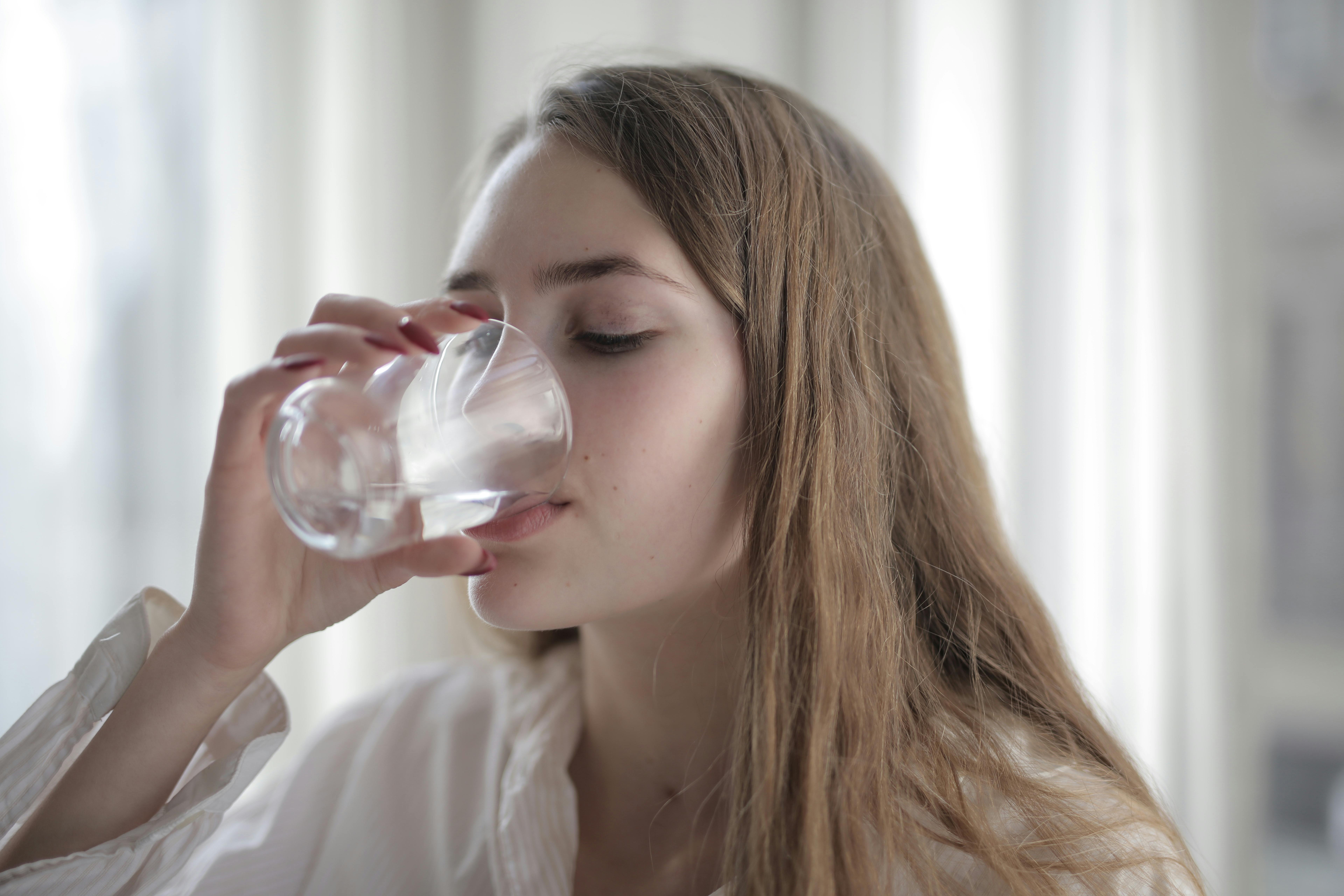
Gulping down water too fast might seem like a good way to hydrate, especially if you’re rushing. But drinking too quickly can cause bloating and may overwhelm your kidneys. Your body absorbs water better when it’s introduced gradually. Sipping slowly allows for proper absorption and gives your digestive system time to process the intake without strain. If you feel uncomfortable after chugging water, it’s a sign to slow down.
Drinking while standing
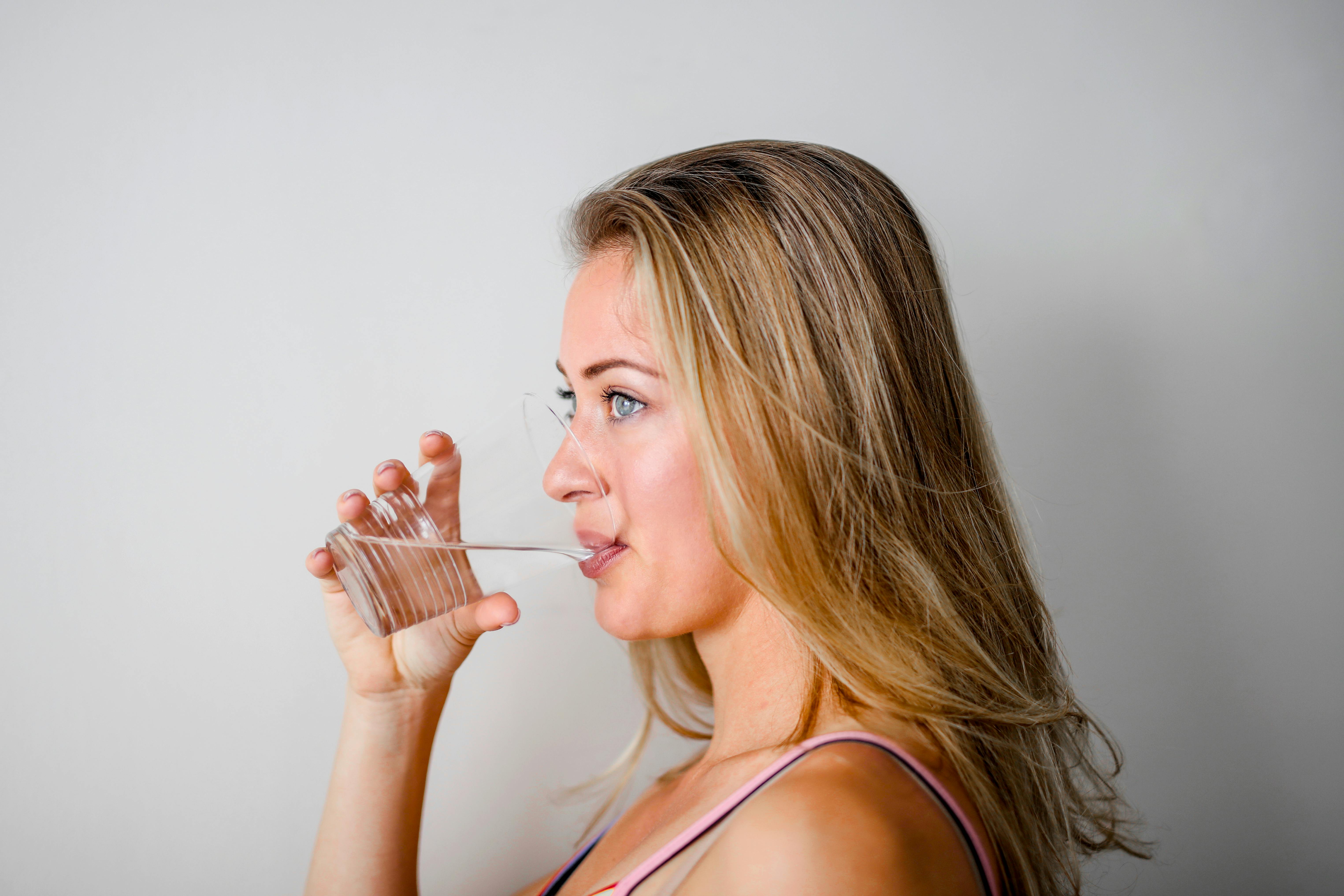
You might not think posture matters when drinking water, but it can make a difference. Drinking while standing may cause water to pass through your system too quickly, reducing its effectiveness. Traditional health practices like Ayurveda suggest sitting down while drinking, which allows your body to relax and digest more efficiently. Sitting also encourages better posture, which supports digestion and circulation. Making this simple switch can improve the way your body processes water.
Chugging water before or during meals
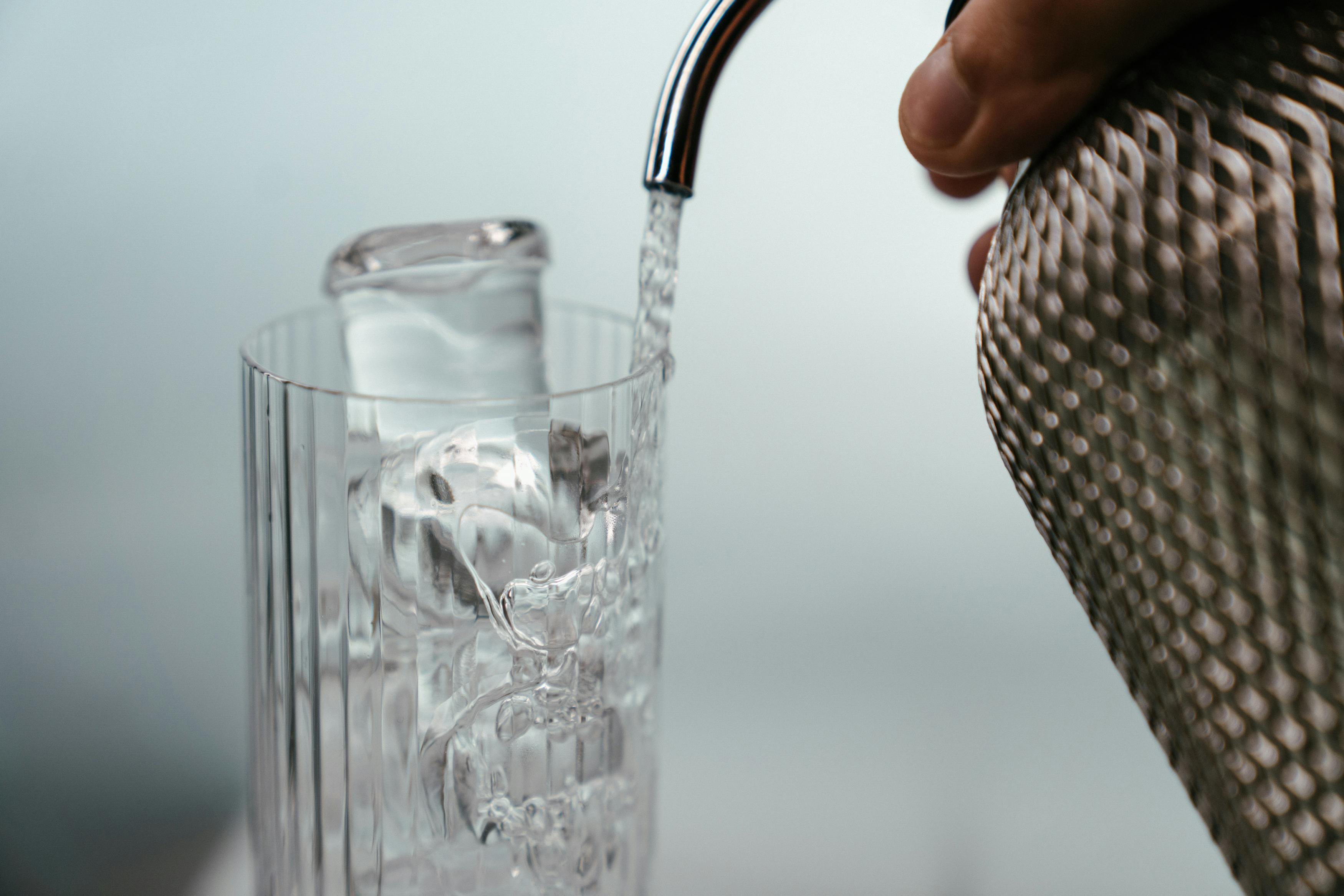
Many people drink large amounts of water right before eating, thinking it will help with digestion or weight loss. In reality, too much water before or during a meal can dilute stomach acids. This dilution interferes with proper digestion and nutrient absorption. It may also lead to bloating or indigestion. A better approach is to drink small sips with your meal and focus on hydrating well in advance. Give your digestive system the balance it needs to do its job.
Avoiding all salt and electrolytes

While reducing sodium is often good advice, cutting out all salt can be a problem, especially for active individuals. Sodium is an essential electrolyte that helps your body absorb and retain fluids. After sweating during exercise or hot weather, you need to replace lost electrolytes. Drinking water without restoring sodium can leave you feeling weak or dizzy. If you’ve been sweating, consider adding a small amount of salt to your food or using an electrolyte-enhanced drink to support hydration.
Read More: What Happens When You Drink Cold vs. Room Temp Water? 7 Eye-Opening Facts
Drinking too much water
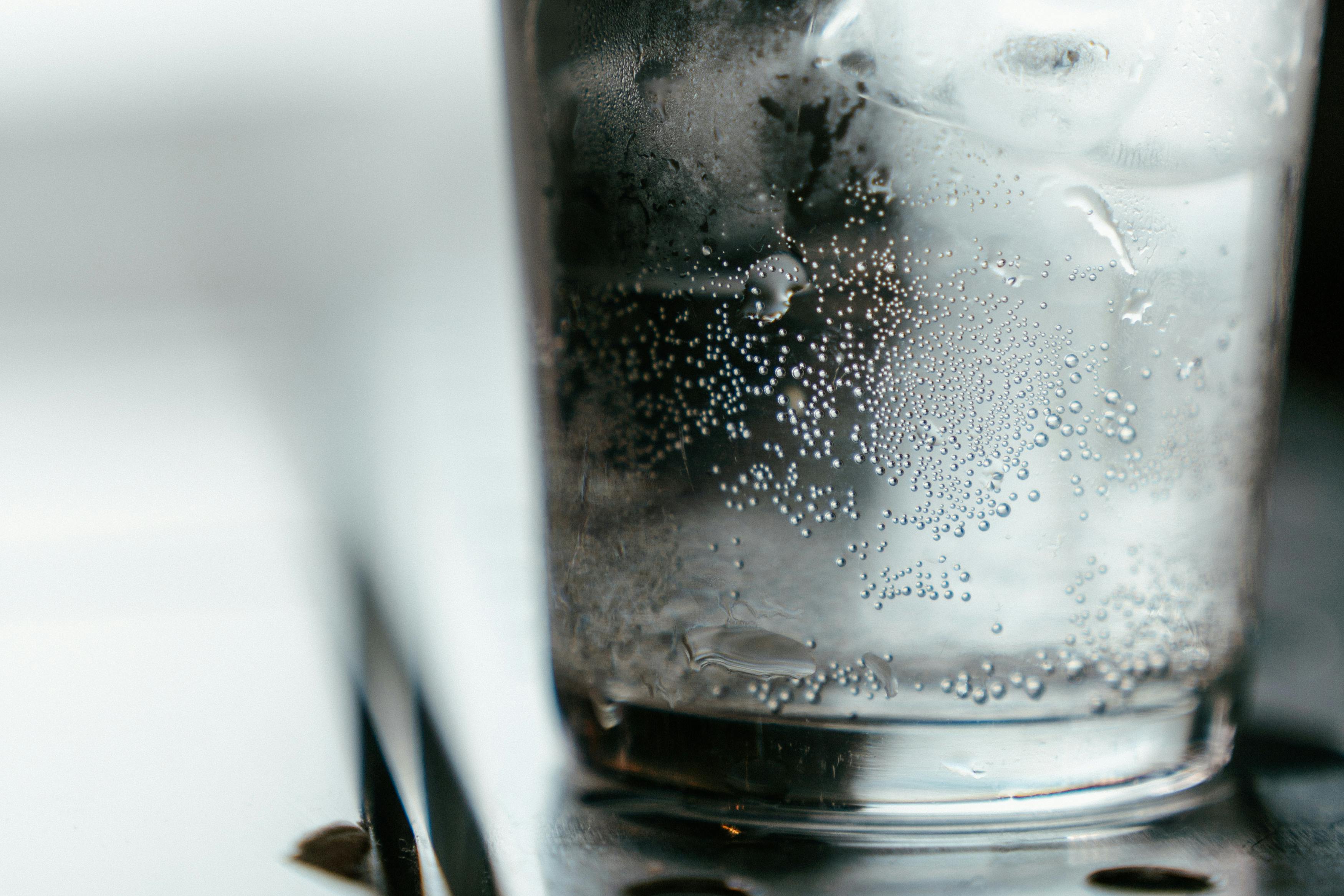
Believe it or not, overhydration is a real problem. Drinking excessive amounts of water can dilute sodium levels in your blood, leading to a condition called hyponatremia. This can cause symptoms like headaches, nausea, confusion, and in severe cases, seizures. Overhydration is rare but most common in athletes who overdrink during endurance events. The key is balance. Drink based on your needs, not just because you think you should. Pay attention to your body and drink according to thirst, activity level, and how much you’re sweating.
Relying heavily on coffee, tea, or sugary drinks

Drinks like coffee and tea do contribute to your fluid intake, but they also contain caffeine, which has a mild diuretic effect. Similarly, sports drinks and flavored waters can be helpful during workouts, but many contain high amounts of sugar. Relying too much on these beverages can lead to increased sugar consumption and may cause more harm than good. For daily hydration, plain water is still the best option. If you want flavor, add a slice of lemon or cucumber instead of reaching for sugary drinks.
Drinking most of your water at night

Some people forget to drink water during the day and try to catch up in the evening. While this may seem like a good way to hit hydration goals, drinking too much water late at night can disrupt your sleep. Waking up to use the bathroom interrupts your sleep cycle and affects overall rest quality. To avoid this, make hydration a daytime habit. Start your morning with a glass of water, sip consistently throughout the day, and ease off after dinner to let your body rest.
Why These Habits Matter

Good hydration habits support every system in your body. Water helps regulate temperature, cushion joints, support digestion, and maintain energy levels. Even small changes in your water routine can improve focus, digestion, physical endurance, and skin health. Poor hydration, on the other hand, leads to fatigue, headaches, brain fog, and muscle cramps. Whether it’s overdrinking, poor timing, or skipping electrolytes, the mistakes we make with water can add up over time. Fixing these habits can lead to better overall wellness and daily performance.
Read More: No Filter Needed: The Cleanest Drinking Water by Country, Ranked
How to Hydrate the Right Way
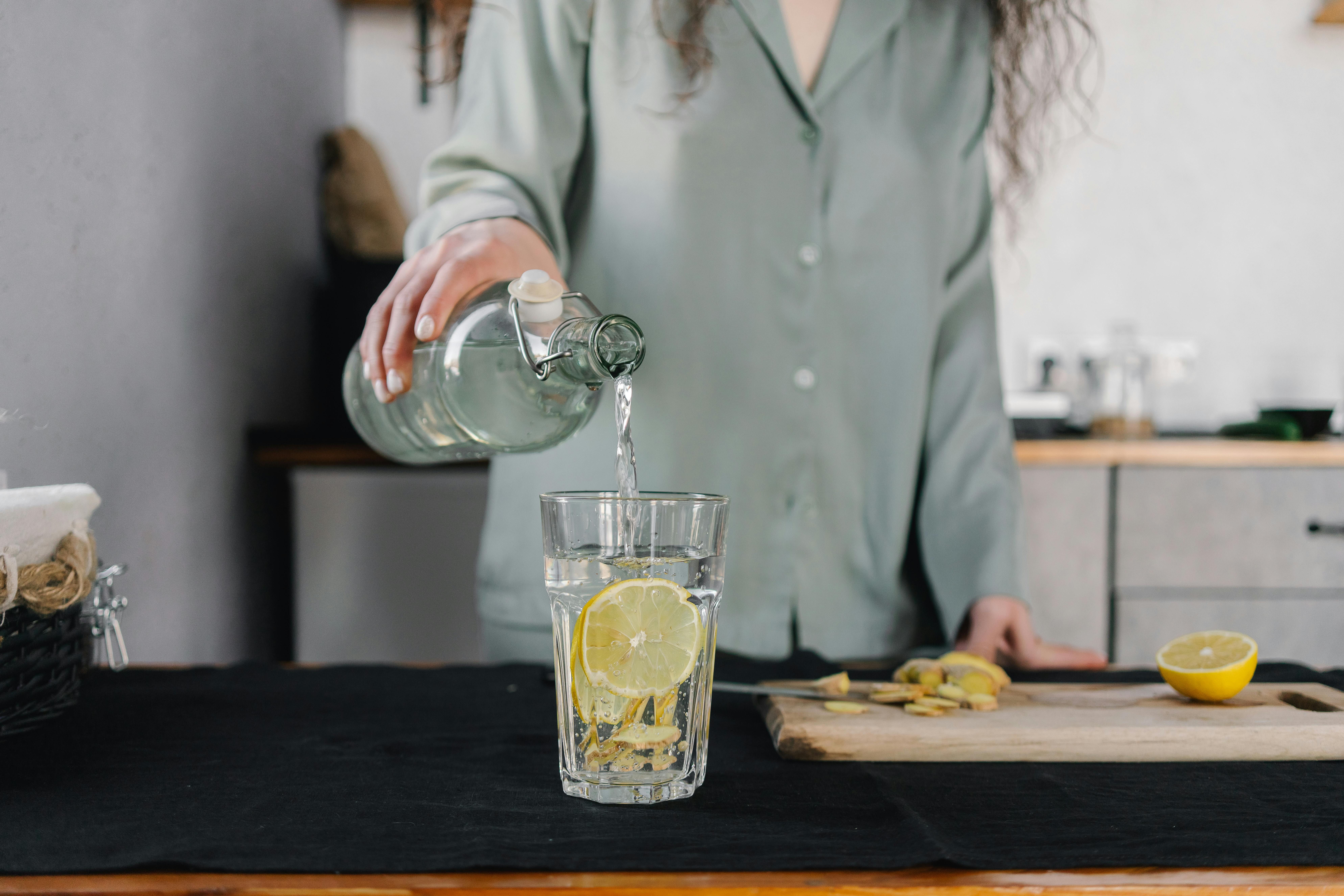
Start your day with a glass of water as soon as you wake up. Sip water consistently throughout the day rather than drinking in large quantities at once. Include water-rich foods in your diet like fruits, vegetables, and soups. If you exercise or sweat a lot, replace lost electrolytes with balanced snacks or electrolyte drinks. Sit down when drinking water, and avoid gulping or drinking too fast. Drink water before meals, but do not overdo it during meals. Avoid relying on coffee, tea, or sugary beverages to meet your hydration needs. Finally, taper off water intake in the evening to protect your sleep.
Disclaimer: This article was created with AI assistance and edited by a human for accuracy and clarity.
